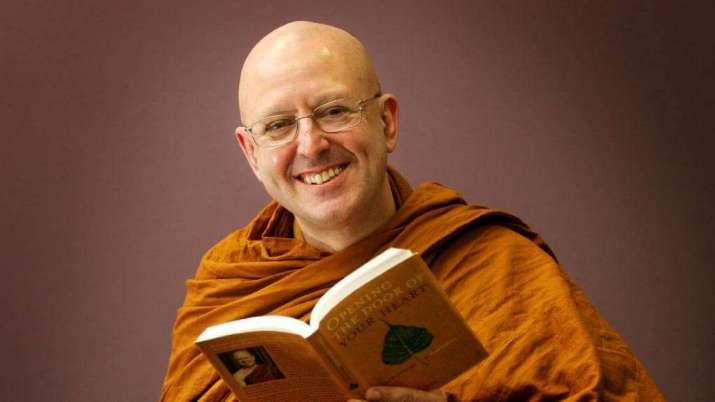Here's why you HAVE to take a break
A few weeks ago, I posted a story from one of my favorite people in the world - Ajahn Brahm. His stories have been turned in quite a few books by now, and they taught me and millions around the world about kindness, compassion and forgiveness, not only towards others, but towards ourselves, too.
So today, I bring you another short story that I have saved and like to read once in a while. It's pretty easy getting caught up in the duties, responsibilities we have, the sort of "work hard" mindset everyone promotes... a never-ending cycle of stress and worry, really! But if you know how to take care of yourself and let yourself rest, even if just for a bit, the "heaviness" can actually turn into motivation and excitement.
Remember, it's all about the attitude, dude!

^
This is the dude I am talking about :)
The Origin of Stress
"During my speech, I held up my glass of water and asked my audience, “How heavy is this glass?”Before they could answer, I continued, “If I keep on holding my glass like this, after five minutes my arm will ache. After ten minutes, I will be in considerable pain. And after fifteen minutes, I will be in agony and a very stupid monk!
“So what should I do?
“Whenever the glass of water starts to feel too heavy for me to hold comfortably, I should put it down for one minute. Having rested my arm for sixty seconds, then I can pick up the glass and carry it again with ease. If you don’t believe me, try it yourself at home!
“This is the origin of stress at your workplace. It has nothing to do with how much work you have to do, nor how heavy your responsibilities are. It has everything to do with not knowing how to put the work down when it feels too heavy to bear, and rest for a little while, before picking up the burden again.”
If you don’t learn to “put down the burden” and take a rest when you feel stressed, then the quality of your work will decline, your output will get much less, and your stress levels will increase. But if you give yourself a half-hour break in the middle of the day, the thirty minutes that you lose is soon made up with higher-quality work completed in less time. You get, for example, four hours work done in three hours, and it is of good quality. Putting down the glass of water, therefore, is not a waste of precious time but an investment, repaid later through the increased efficiency of your brain."

Comments
Post a Comment